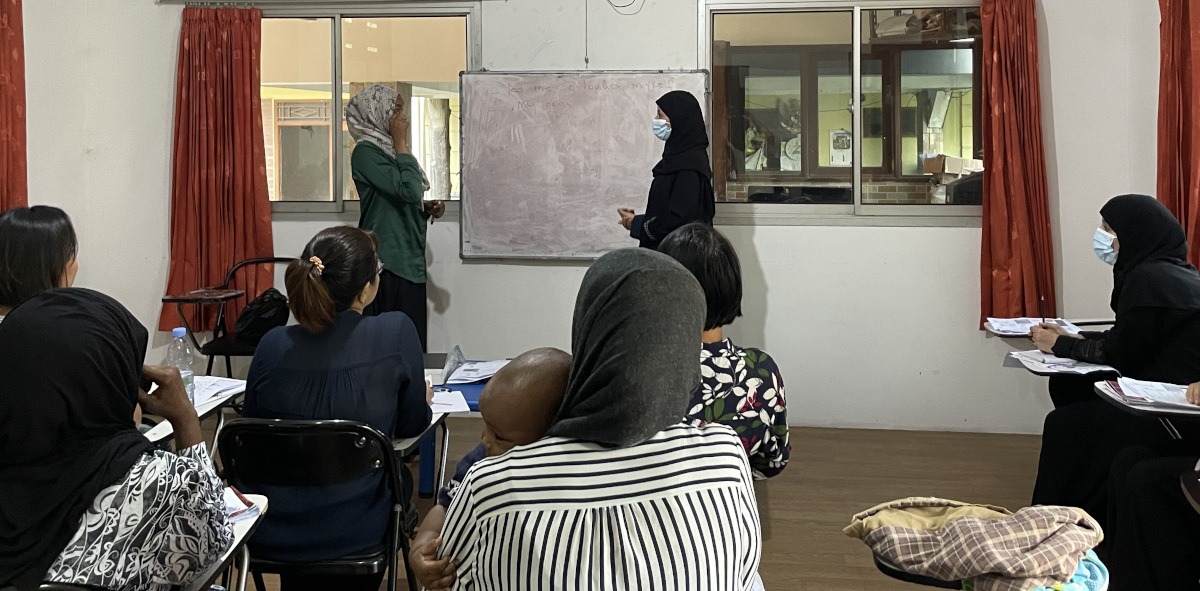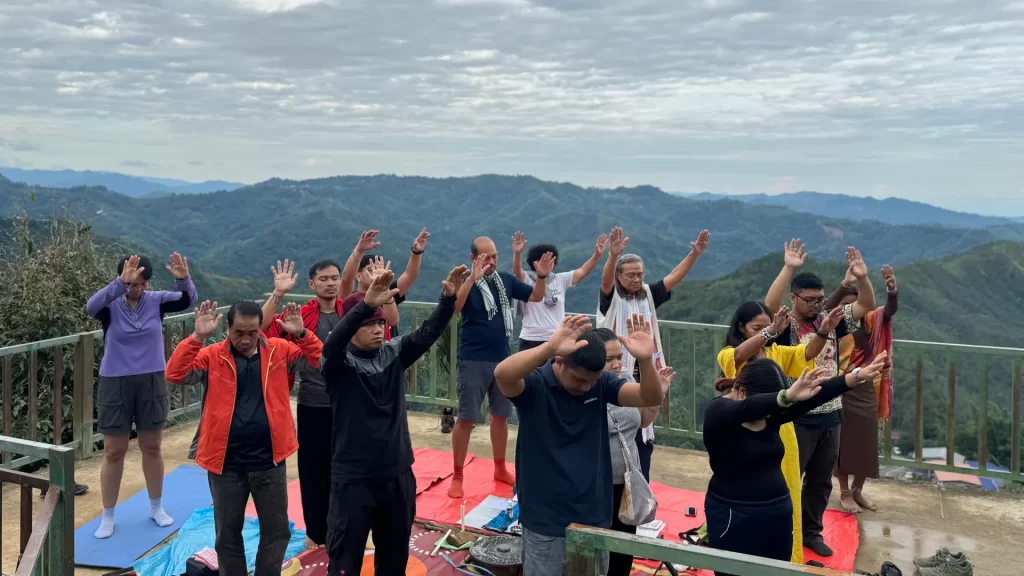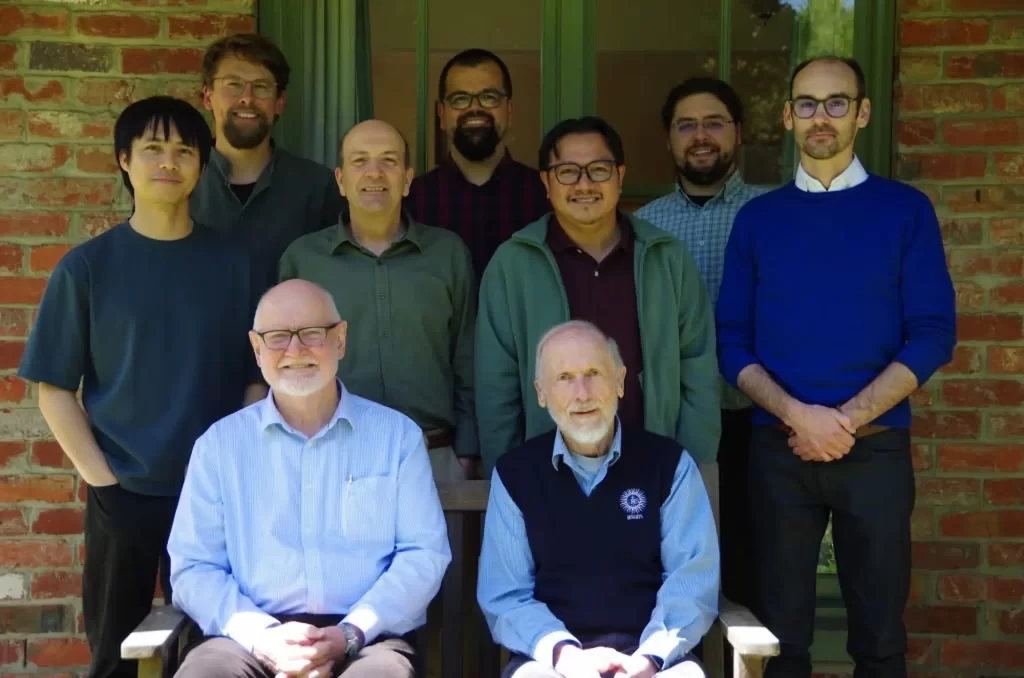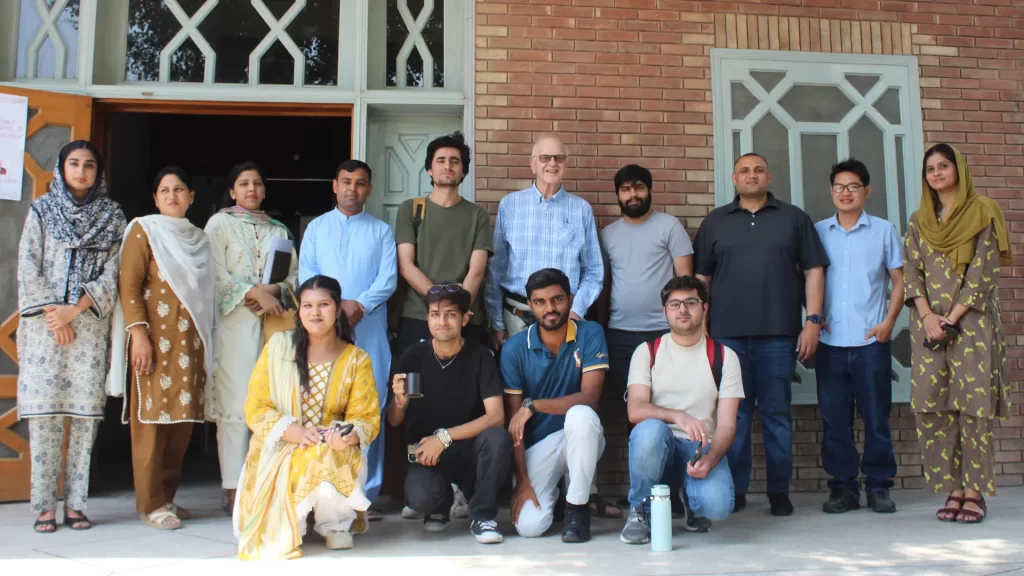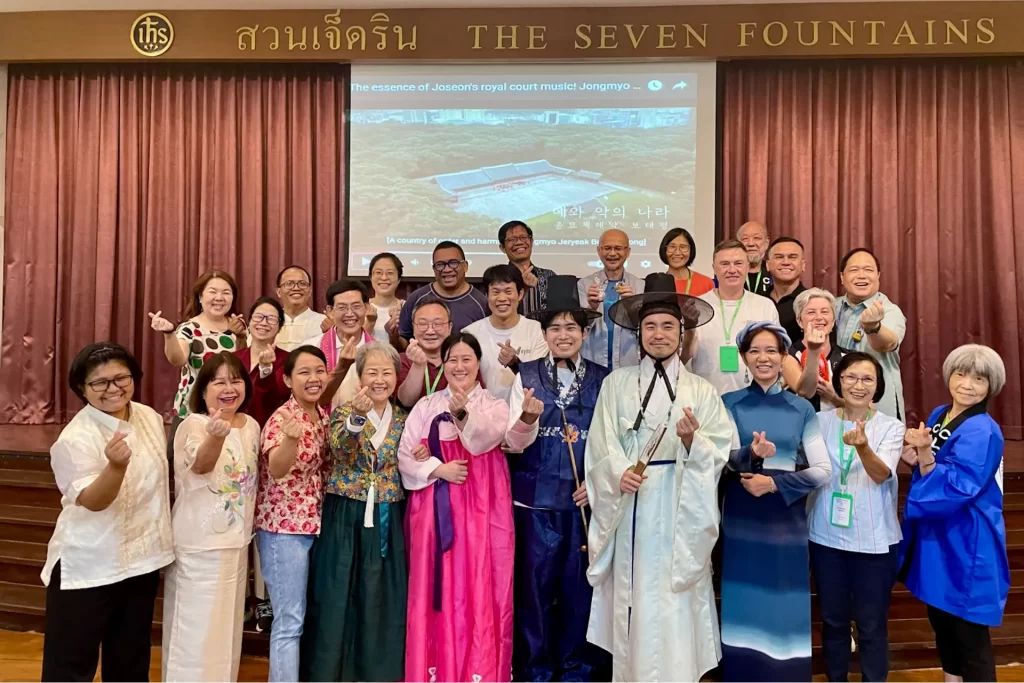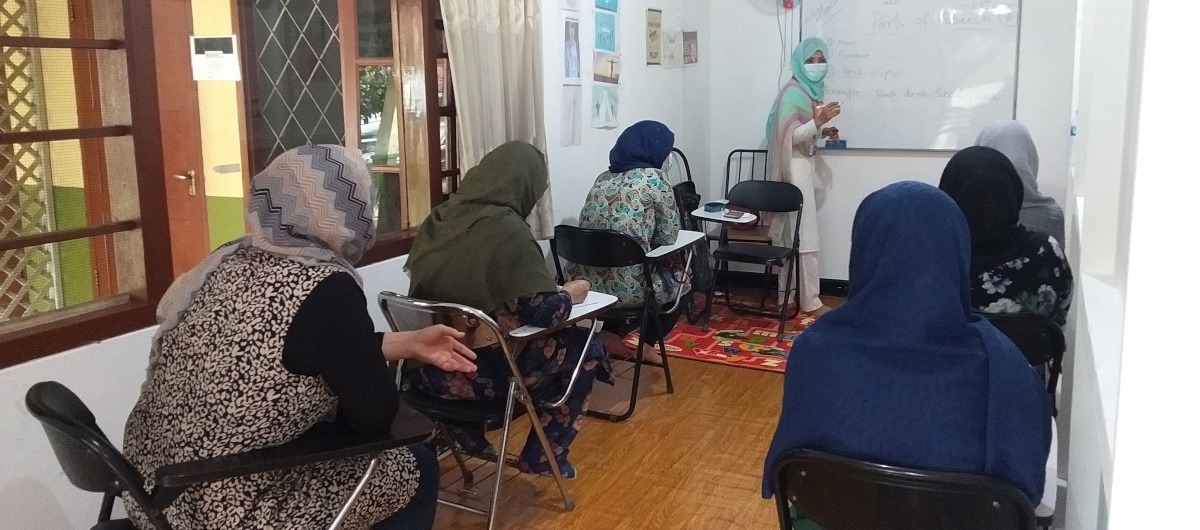
A group of female refugees attend class organised by JRS Indonesia
In the bustling neighbourhoods of Jakarta and the serene landscapes of Bogor, I recently had the privilege of witnessing the profound impact of refugee support initiatives led by our partner, Jesuit Refugee Service (JRS) Indonesia. My visit opened my eyes to the extraordinary resilience and spirit of people forced to flee their homes due to conflict, persecution, or unrest.
My journey began with visits to refugee families grappling with the harsh realities of displacement. I saw firsthand the many challenges these families faced. Basic necessities such as food, housing, and medical care were often scarce. Education for children was frequently interrupted, leaving a significant gap in their learning and development. Additionally, the lack of legal status or documentation created barriers to accessing essential services and opportunities for employment.
Through JRS Indonesia’s case management approach, the project is able to tailor our assistance to provide the most impactful support. This support includes emergency financial assistance to cover basic living expenses, which offers immediate relief from some of the pressing financial burdens they faced. Our goal is not only to address their urgent needs but also to empower de facto refugees to focus on long-term solutions, such as securing housing and accessing education and vocational training. This allows them to focus on rebuilding their lives and finding long-term solutions to their displacement.
The following day, the scene shifted to community empowerment through education and vocational training. I had the opportunity to meet with a remarkable female refugee from Sudan who has taken the initiative to run private English tuition classes specifically for adult women. Her dedication to empowering others through language education is truly inspiring. I also spoke with a courageous female refugee from Afghanistan who conducts threading classes for women, teaching them a valuable skill that can be both a source of income and a means of fostering community connections.
I also had the opportunity to visit inspiring initiatives like the Refugee Learning Nest (RLN) and Care the Displaced Children (CDC). Founded and managed by refugees themselves, these organisations offer a unique understanding of the challenges faced by their communities. The RLN and CDC offer a range of programmes, including formal and informal education, language classes, and educational support such as tutoring and workshops, that aim at enabling children to maintain their education. The dedication and resourcefulness of the teachers and staff, many of whom are themselves refugees, create a powerful sense of community and support. The learning centres are more than just classrooms—they are beacons of hope and resilience, offering refuge not just in physical spaces but in opportunities for growth and learning.
Beyond the tangible support, it was evident that the project provided a lifeline—a sense of stability and hope in the face of uncertainty. Since I visited in June this year, I have been reflecting on these experiences. What struck me most was not just the hardships these refugees faced but their unwavering determination to build a better future. Each person I met had a story—a narrative of resilience, hope, and the universal desire for a place to call home.
Amidst the complexities of global displacement crises, it is easy to feel overwhelmed by the scale of challenges. Yet, through partnerships, advocacy, and compassionate action, we can make a tangible difference in the lives of those most in need. The journey of each refugee is a testament to the transformative power of support and solidarity, reminding us of our shared humanity and the imperative to stand with displaced communities worldwide.

